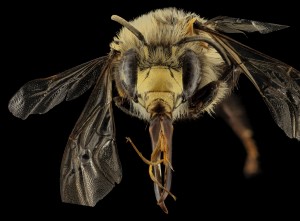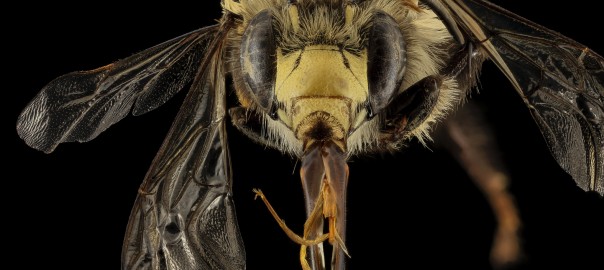*This page will be updated with new topics and additional presentations throughout the summer. Have session you want added? Email llester@esa.org.*
California
San Francisco Bay
-
Field trip 3 : Tidal Marsh and Managed Salt Ponds Surrounding San Francisco Bay
Saturday, August 9, 2014: 8:00 AM-3:00 PM , J Street Entrance -
Contributed oral session 24-9: Evaluating three decades of change in San Francisco Bay’s waterbirds: An assessment of population abundance and community composition
Tuesday, August 12, 2014: 10:50 AM, Regency Blrm A, Hyatt Regency Hotel -
COS 60-3: A test of wintering waterfowl habituation to recreation in San Francisco Bay: Implications for waterfowl conservation
Wednesday, August 13, 2014: 8:40 AM, Regency Blrm B, Hyatt Regency Hotel -
COS 88-5: Exploring changes to the northern San Francisco Estuary phytoplankton community by probing a 40-year monthly monitoring record
Wednesday, August 13, 2014: 2:50 PM , Beavis, Sheraton Hotel -
Organized oral session 32-10: California Gull population growth and response to tidal marsh restoration in San Francisco Bay
Wednesday, August 13, 2014: 4:40 PM, 308 -
Symposium 22-5: A discussion of ecology and economy in promoting and protecting the benefits of the San Francisco Bay-Delta Complex
Friday, August 15, 2014: 10:10 AMCamellia, Sheraton Hotel
California rivers and watersheds-
press release: 2014 Earth Stewardship Initiative Demonstration Project: sustaining and enhancing Earth’s life-support systemsThe American River Parkway at the nexus of ecological science and design
sessions:
-
Organized oral session 12: Biota of the Los Angeles River, New Studies and Insights in 2014
Tuesday, August 12, 2014: 8:00 AM-11:30 AM, 307 -
Organized oral session 44: Riparian Ecology, Management, and Restoration in California’s Great Central Valley
Thursday, August 14, 2014: 1:30 PM-5:00 PM, 306 -
Organized oral session 49: From Mountains to the Saline Lakes of the Great Basin: Ecosystems at Risk
Friday, August 15, 2014: 8:00 AM-11:30 AM, 204
Drought-
Sessions:
-
Organized oral session 6: Ecological Drought in California Forests: Linking Climate Science and Resource Management
Monday, August 11, 2014: 1:30 PM-5:00 PM, 307 -
Organized oral session 36: Drought and Tree Mortality: Linking Experimental Results and Observations With Predictive Models.
Thursday, August 14, 2014: 8:00 AM-11:30 AM, 304/305
presentations:
Organized oral session 6-8: Translating ecological drought into resource management: giant sequoias
Monday, August 11, 2014: 4:00 PM, 307
Symposium 5-3: Drought, invasive grasses and fire cycles – implications for ecosystem resilience in drylands
Tuesday, August 12, 2014: 9:00 AM, Gardenia, Sheraton Hotel
Fire-
press release: Stewardship of fire ecology by native Californian culturesCalifornia's tribal peoples utilized wildfire to diversify resources
-
Field trip 4: Tribal Land and Resource Management in the Sacramento Valley-Delta: Fire and Culture
Saturday, August 9, 2014: 9:00 AM-5:00 PM . J Street Entrance
-
Ignite 1-6: Out of the frying pan and into the fire: Climate change and the Southwest United States
Monday, August 11, 2014; 313 -
Organized oral session 5-2: A history of megafires and extreme droughts in California
Monday, August 11, 2014: 1:50 PM, 306 -
Organized oral session 6-6: What do changing climate suggest about future fire frequency in California?
Monday, August 11, 2014: 3:20 PM, 307 -
Symposium 5-3: Drought, invasive grasses and fire cycles – implications for ecosystem resilience in drylands
Tuesday, August 12, 2014: 9:00 AM, Gardenia, Sheraton Hotel
Rim Fire
press release: The Rim Fire one year later: a natural experiment in fire ecology and management
-
COS 6-9: On the use of high-fidelity remote sensing to evaluate ecological indicators: A case study using the Rim Fire
Monday, August 11, 2014: 4:20 PM, Regency Blrm A, Hyatt Regency Hotel -
PS 23-62: Unprecedented remote sensing data products from before and after the Rim Fire, Sierra Nevada, California
Tuesday, August 12, 2014 , Exhibit Hall, -
OOS 7-9: Site, weather, and forest characteristics associated with Rim Fire burn severity in forests with restored fire regimes
Tuesday, August 12, 2014: 10:50 AM, 202 -
FT 18: The 2013 Rim Fire – Forest Management Influencing Fire Ecology
Friday, August 15, 2014: 7:00 AM-7:00 PM, J Street Entrance, Sacramento Convention Center
Pollinators -

The birds, bees, bats, moths, beetles, flies, and other creatures that move pollen between flowers--an essential assist in reproduction for a great variety of plants, including many of our fruits and vegetables.
sessions:
- Poster session 41: Pollination. Wednesday, August 13, 2014: 4:30 PM-6:30 PM. Exhibit Hall.
- Contributed talks session 122: Pollination I. Thursday, August 14, 2014: 1:30 PM-5:00 PM. Room 315.
- Contributed talks session 140: Pollination II. Friday, August 15, 2014: 8:00 AM-11:30 AM. 314.
presentations:
- Poster session 17-133: Landscape drivers of pollination services in urban gardens
- Monday, August 11, 2014. Exhibit Hall.
- Workshop 30: Intergovernmental Platform on Biodiversity and Ecosystem Services Thematic Assessment of Pollination and Food Production. Tuesday, August 12, 2014: 11:30 AM-1:15 PM. 203.
- Organized talks 19-4: Nectar microbial community assembly and plant-pollinator mutualism. Tuesday, August 12, 2014: 2:30 PM, 308.
- Contributed talk 69-7: Small-scale field-margin restoration for pollination services in agriculture. Wednesday, August 13, 2014: 10:10 AM. Room 314.
- Organized talks 31-4: Can pollinator habitat plantings restore both biodiversity and ecosystem services? Wednesday, August 13, 2014: 2:30 PM. Room 307.
- Organized talks 31-5: Native bee community functional diversity explains sentinel plant pollination in an intensive agricultural landscape. Wednesday, August 13, 2014: 2:50 PM. Room 307.
- Organized talk 31-10: Restoration in intensive agricultural landscapes differentially supports more vulnerable species in pollinator communities. Wednesday, August 13, 2014: 4:40 PM. Room 307.
- Contributed talk 77-8: Do ecosystem service-providers and rare bees prefer the same plant species? A three-year experimental field study. Wednesday, August 13, 2014: 4:00 PM.
- Contributed talks 97-1: Abundance, not species richness, drives ecosystem service delivery at large spatial and temporal scales. Thursday, August 14, 2014: 8:00 AM. Regency Blrm D, Hyatt.
- Contributed talk 124-2: Coevolution and the assembly of ecological networks. Thursday, August 14, 2014: 1:50 PM. Beavis, Sheraton.
- Organized talks 46-5: Investigating the effects of production-scale harvesting on pollination and biocontrol services in bioenergy grasslands. Thursday, August 14, 2014: 2:50 PM. Room 308.
- Contributed talks 115-10: More pollinator species are required for pollination function at larger spatial scales, but high regional dominance can suppress this effect. Thursday, August 14, 2014: 4:40 PM. Regency Blrm D, Hyatt Regency Hotel.
